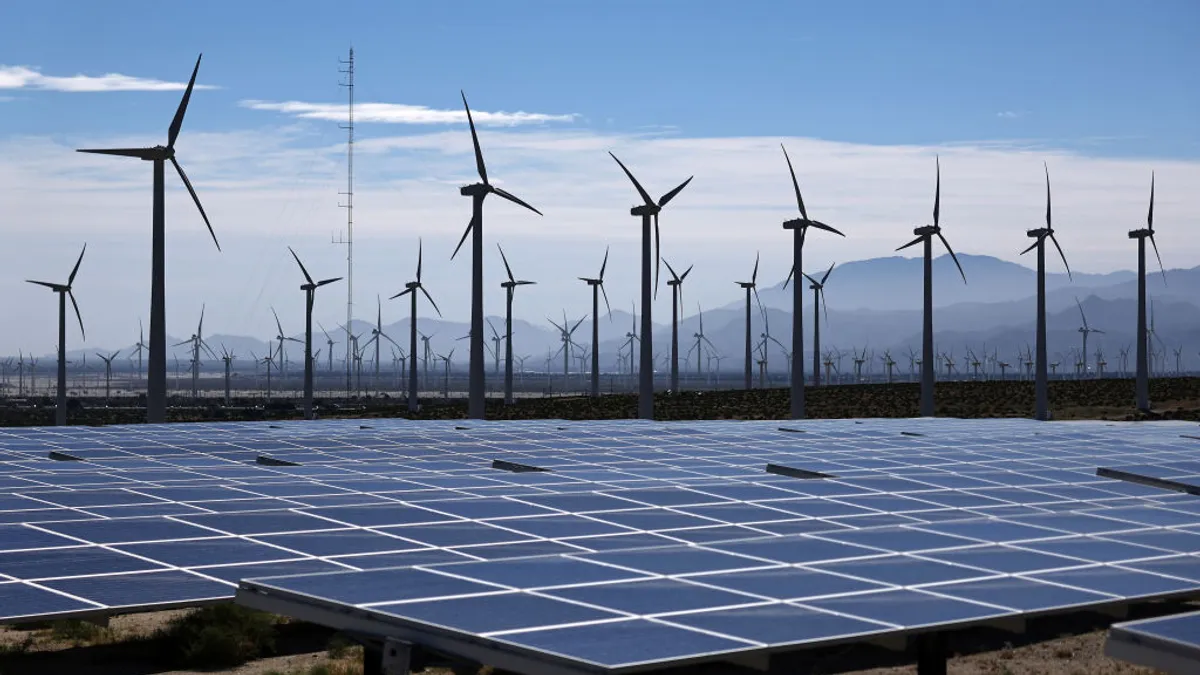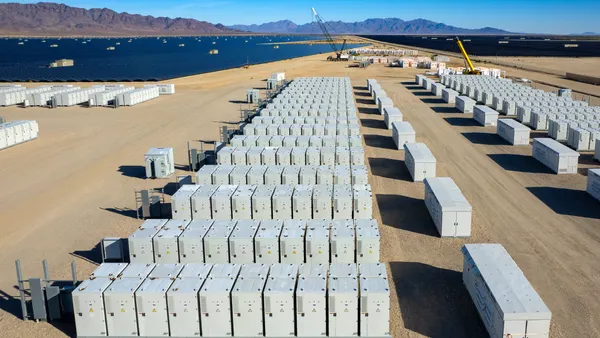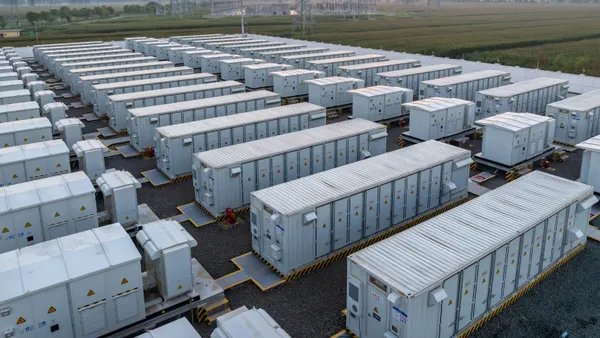Dive Brief:
-
To meet the state's goal of eliminating 50% of carbon emissions by 2030, Colorado may require an 80% cut in electric sector emissions, according to a draft plan released Wednesday.
-
The plan calls for zero-carbon generation from both Xcel Energy and the Tri-State Generation and Transmission Association by 2050, in addition to a transition to 100% electric cars, incentives for electric heating in buildings and a 50% reduction in emissions from oil and gas production by 2030.
-
The draft has the state's solar industry gearing up for growth, but a state oil and gas association expressed concern that Colorado is trading emissions for other environmental harms. Ariana Gonzalez, Colorado policy director at the Natural Resources Defense Council, said studies by the environmental group suggest Colorado has not asked enough of the electric sector.
Dive Insight:
While electrical generation has been identified as the second most significant source of greenhouse gas emissions by a multi-agency state analysis, Colorado's newly released Greenhouse Gas Pollution Reduction Roadmap devotes more time to addressing transportation and buildings — a direction bolstered by a sense that the state's power sector is already headed in the right direction.
"With our collective progress toward clean energy and the state's leading utilities committed to closing coal-fired power plants and replacing them with wind and solar, it's time to invest in the beneficial electrification of transportation and buildings to expand both the economic and climate benefits of our cleaner electrical grid," Will Toor, executive director of the Colorado Energy Office, said in a statement.
But Gonzalez believes the electric sector can do better — perhaps even cutting 90% of emissions by 2030.
Models released by NRDC and other groups on Wednesday outline four additional plans for meeting Colorado's 2050 climate targets, including scenarios where the electric sector transitions more slowly and more quickly than the state plan suggests. These models, Gonzalez said, show that a speedier energy transition could achieve the same overall emissions goals more reliably and at a reduced cost.
"There's also the question of stock turnover," Gonzalez said. "We're waiting for folks to replace their gas stove with an electric stove, or change their hot water heater or car. It's hard to predict that timeline versus large carbon emitters like coal plants or gas plants, where a single decision maker can have a really huge impact."
The models also suggest "huge opportunities for the utilities going forward, and part of that is because of the electrification needed on the building and transportation side."
As expected, Colorado's renewable energy industry has met this news with enthusiasm.
"We've known since the 2019 passing of the bill [that included GHG reduction targets for Colorado], that the future was all clean" energy, said Mike Kruger, president and CEO of the Colorado Solar and Storage Association. "We were prepared for the transition of the pie as it was in 2019, but now we see the governor's plan saying the pie has to get a lot bigger, and my guys will have to work harder and even faster."
The legislation has already spurred growth in the state's solar industry by giving companies the certainty they needed, Kruger said, and the roadmap only strengthens that case. "That provides a lot of direction for industry, a lot of things we could point to when making 20-year decisions," he said. "We know we're not going to see a policy change and be left with a stranded asset."
Kruger expressed optimism that the roadmap would attract additional solar development to Colorado, and said he saw the required 80% emissions reduction as more of a minimum for utilities, rather than a cap on potential progress.
However, the plan was met with somewhat less enthusiasm by the oil and gas industry, which the roadmap asks to reduce methane emissions by 50%. While the Colorado Oil & Gas Association shares the governor's concerns about reducing methane, association President and CEO Dan Haley said in a statement, "leaders need to be careful that we are not trading emissions, or making decisions that produce larger environmental damages elsewhere."
"All energy sources have trade-offs, whether you're mining the raw materials in other countries to make solar cells and batteries at massive scales, or identifying the landscape needed to host the windmills and solar farms required for this roadmap," he said. "We need to be driven by realistic goals and expectations founded in data and science and not political agendas."
Gonzalez also expressed concern for a resource she felt was not adequately addressed in the roadmap: the workers and communities disproportionately reliant upon, or impacted by, carbon-heavy industries. She said NRDC would be calling on Colorado to address issues of equity in public comments due Nov. 1.
"If you're only looking to reduce greenhouse gas emissions," she said, "you're not going to address all the equity needs."













